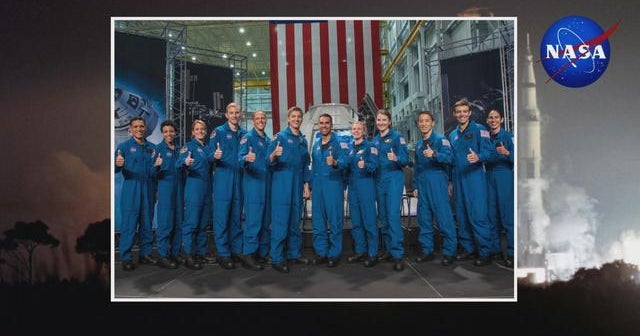Friday, June 13, 2025

In today’s fast-paced world of travel, the experiences offered to consumers are no longer mere add-ons but have become central to shaping a brand’s identity and fostering customer loyalty. This change is reflected in how these experiences are marketed, booked, and consumed. At the recently held Phocuswright Europe event, top executives from leading companies in the travel sector—Hyatt Hotels Corporation, Booking.com, and Amadeus—discussed the transformation of the travel experience industry, shedding light on what might be one of the biggest battlegrounds in the sector.
Mariya Donat, Director of Digital Content Strategy for Europe, Africa, and the Middle East at Hyatt Hotels Corporation; Neha Jindal, Managing Director of Attractions at Booking.com; and Nicolas Martiquet, Director of Amadeus Discover, shared insights into the current state and the future of selling travel experiences. Each of them emphasized how these experiences have always been at the heart of travel, but the methods of discovery, inspiration, and booking are rapidly evolving. As the industry embraces digital transformation, the role of artificial intelligence (AI), social media, and personalization has become increasingly crucial in redefining the future of travel sales.
Experiences as Emotional Connectors in the Travel Sector
For Hyatt, experiences are not just additional services but essential drivers of emotional connection with customers. Mariya Donat explained that experiences are central to Hyatt’s strategy, focusing on brand differentiation, extending guest stays, and enhancing loyalty. According to Donat, the core of the Hyatt experience is not simply a stay at a hotel but the ability to provide unforgettable experiences that foster deep emotional bonds with their customers. These experiences encourage guests to return, making them an integral part of their journey and reinforcing loyalty.
Building on this, Neha Jindal from Booking.com emphasized that experiences, such as local attractions and unique activities, are key to building lasting memories. According to Jindal, when travelers associate positive memories with certain brands, they are more likely to return and book again. “Experience drives loyalty, and loyalty drives profitability,” Jindal stated, highlighting the importance of consistent, memorable experiences for both short- and long-term customer retention.
As a result, the idea of “experiential travel” is no longer a buzzword; it has become a crucial pillar for brands to differentiate themselves and build long-term loyalty.
The Role of Social Media in Shaping Travel Inspiration
While travel inspiration was once derived from traditional offline sources such as movies or conversations with friends, the landscape has shifted dramatically with the rise of social media platforms like Instagram and TikTok. Today, travelers increasingly discover destinations, attractions, and experiences online. “Attractions are still very much at the center of that inspiration and planning and booking,” said Jindal, “but Instagram and TikTok have replaced that movie scene or friend. Social media has revolutionized the way travelers discover their next adventure.”
This shift has led to the democratization of travel experiences, with more people having access to real-time information about destinations and activities. Social media’s ability to showcase authentic, user-generated content has allowed potential travelers to see what their peers are experiencing in real-time. From influencers to everyday travelers, social media has become the new “travel magazine,” enabling a more engaged, immediate, and authentic form of inspiration.
With this shift in inspiration, the entire travel booking process has become more digitalized. Online booking platforms and apps now act as intermediaries, replacing the traditional brick-and-mortar tour operators of the past. These online solutions have become essential for today’s tech-savvy traveler, who expects instant access to information, streamlined booking processes, and personalized recommendations.
The Role of Artificial Intelligence and Large Language Models in Shaping the Future of Travel
Looking ahead, industry experts agree that AI and large language models (LLMs) will play a significant role in shaping the future of travel sales. Martiquet from Amadeus noted that as search engine optimization (SEO) becomes less important, there is a growing need to optimize content for large language models and artificial intelligence tools. This shift means that the future of travel marketing will involve the creation of highly personalized experiences, with AI tools capable of understanding complex customer preferences and delivering tailored recommendations.
AI is already being used to provide personalized travel suggestions based on a user’s browsing history, preferences, and past behaviors. This technology helps streamline the decision-making process for travelers, offering them options without overwhelming them. By utilizing machine learning algorithms, companies can offer curated experiences that meet individual travelers’ desires, whether they are looking for a cultural adventure, a relaxing beach getaway, or an adrenaline-fueled outdoor experience.
For instance, Booking.com’s AI-powered systems allow travelers to receive personalized suggestions based on their preferences. Similarly, Hyatt uses AI to offer customized vacation packages and tailored local experiences that resonate with the guest’s unique interests.
Overcoming the Challenge of Choice Overload with AI-Driven Personalization
One of the key challenges in the travel industry today is the overwhelming number of choices available to consumers. While having a wide variety of options is a great advantage, it can often lead to decision fatigue for travelers. Martiquet discussed how AI is helping to alleviate this problem by narrowing down the options and presenting curated experiences that meet the traveler’s needs. “We want to give travelers choices, but we also don’t want to overwhelm them. AI can provide just the right options,” he said.
In addition to enhancing user experiences, AI is also being leveraged to improve operational efficiency within travel companies. From improving customer service with AI chatbots to enhancing backend systems with automated processes, AI helps companies in the travel industry become more efficient and responsive to customer needs.
Conclusion: The Future of Travel Experiences and Personalization
The travel industry is on the cusp of a major transformation driven by digital innovation, AI, and the evolving role of social media in travel discovery. As companies like Hyatt, Booking.com, and Amadeus continue to innovate and adapt to changing consumer expectations, experiences will remain at the heart of the travel sector. However, how these experiences are discovered, planned, and booked will be increasingly shaped by AI and social media.
For travelers, this means more personalized, relevant, and authentic travel experiences that cater to their unique preferences. For travel companies, it represents an opportunity to build stronger emotional connections with customers, foster loyalty, and drive profitability.
As the industry continues to evolve, the future of travel will be more connected, personalized, and driven by technology than ever before.
Tags: Africa, AI in Travel, Amadeus Discover, booking.com, Europe, experiential travel, future of travel, global travel industry, Hyatt Hotels, loyalty in travel, Middle East, online travel booking, personalization in travel, social media travel inspiration, travel experiences, travel technology, United States



